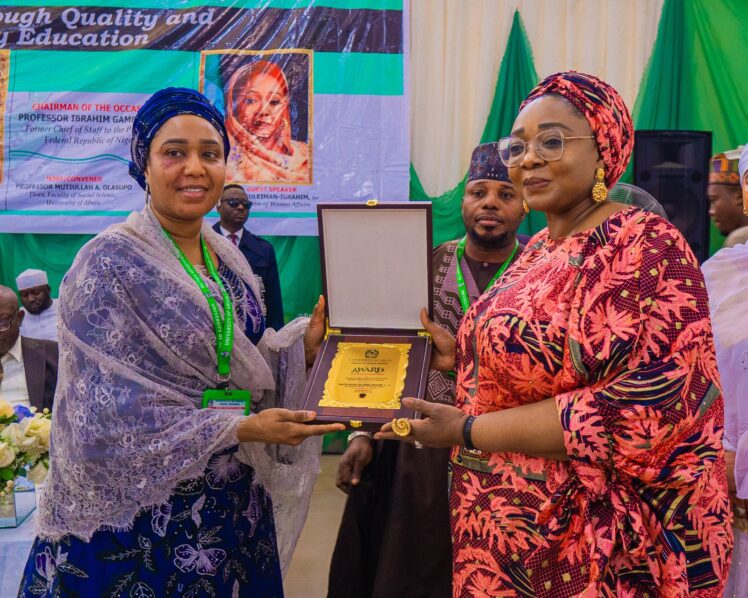
Minister of Women Affairs, Imaan Sulaiman-Ibrahim, has said a staggering 1.4 million Nigerians are trapped in modern slavery.
Speaking as a special guest speaker at the 2025 annual academic summit at the University of Abuja on Wednesday, the minister lamented that most victims of modern slavery are women and girls.
Citing the Global Slavery Index (2023), Sulaiman-Ibrahim revealed that Nigeria ranks among the top 10 countries with the highest number of trafficked persons.
In a statement signed by the Special Adviser to the Minister on Media and Publicity, Jonathan Eze, the minister set out the context of her presentation by referencing some statistics, which, according to her, do not do justice to the immense potential that the country holds.
“Over 60per cent of Nigerians attempting to migrate irregularly are women and girls, many of whom are trafficked for forced labour or sexual exploitation,” Eze said.
“Reports indicate that over 50,000 Nigerian women are trapped in forced prostitution across Europe, particularly in Italy and Spain.
“The International Organisation for Migration (IOM) estimates that more than 80per cent of Nigerian women who arrive in Europe through irregular routes are potential trafficking victims.
“The United Nations Office on Drugs and Crime (UNODC) reports that Nigeria accounts for nearly 50 per cent of all human trafficking cases in West Africa.
“These figures underscore the urgent need for policy, awareness, and systemic interventions to combat the menace of human trafficking and illegal migration.
“Illegal migration and trafficking do not happen in a vacuum. Several factors contribute to the vulnerabilities of Nigerian girls, including Poverty and Economic Hardship, Lack of Education and Skills, Cultural and Gender Norms, and Weak Law Enforcement, amongst others.”
The minister concluded that the fight against illegal migration and girl-child trafficking is a fight for the soul of the nation, adding: “If we fail to act decisively, we risk losing an entire generation of young women to exploitation, violence, and despair.
“We are working with lawmakers to review and enhance protection laws for women and children, to close existing loopholes. I recently inaugurated a Committee to review the Child Rights Act of 2003.”
The high point of the event was when the minister handed over a brand new tablet device to a student, Judith Obodoagu, who is also a fashion designer to advance her entrepreneurial skills.
Earlier, the Vice Chancellor of the University, Professor Aisha Sani Maikudi, the convener, Professor Mutiullah Olasupo, the former Chief of Staff to the President, Professor Ibrahim Gambari, and others set the tone and encouraged the students to face their studies and focus on a bright future that awaits them.






